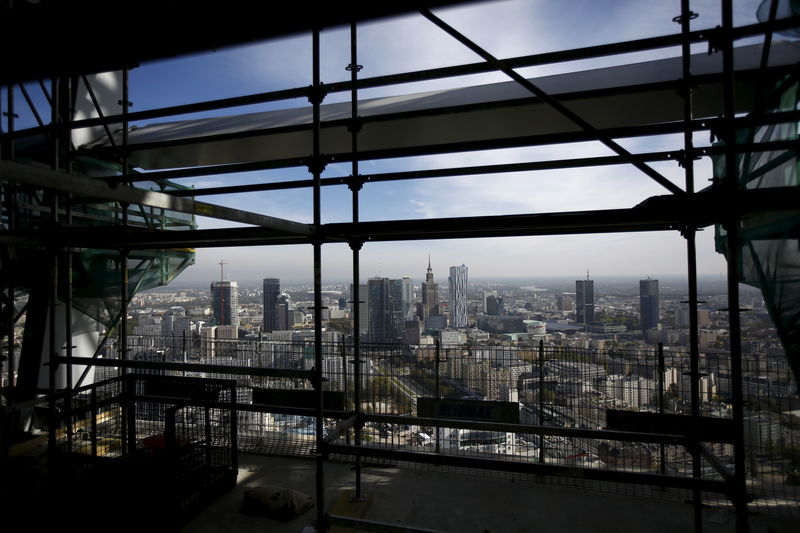(Bloomberg) --
The economy seen as most resilient to the coronavirus in the European Union, Poland bottomed out in April and is heading for a U-shape recovery, according to the head of its relief efforts.
The EU sees Poland’s gross domestic product shrinking 4.3% this year, the least among the bloc’s 27 economies. While a deputy prime minister said the country may avoid a downturn completely, the head of the state development fund the impact may be felt for years.
“We achieved a trough in economic activity in the second half of April,” Pawel Borys, Chief Executive Officer of PFR SA, said on Monday. “This doesn’t mean May or June won’t be difficult,” and second-quarter GDP is likely to decline 10% to 15%, he said.
PFR is in charge of distributing state aid to companies. Micro-firms, which employ less than 10 workers, can apply for as much as 36,000 zloty ($8,560) in benefits per employee, depending on how much the virus lockdown slashed their revenue.
In less than two weeks of relief operations, PFR granted 11.5 billion zloty of subsidies to more than 56,000 companies, according to Borys, who expects the number to reach 100,000 soon. Some of the debt may be forgiven next year.
“Everything indicates that it will will take several months to exit the crisis in a U-shape recovery,” Borys said. Nevertheless, “we’ll feel the impact of what’s happening now for years.”
Rafal Benecki, chief economist at ING Bank Slaski SA, said that with economic activity in the euro region, which buys more than half of Poland’s exports, expected to shrink by 8% this year, it’s difficult to forecast growth in the EU’s biggest eastern economy. He agreed that the second quarter will be Poland’s worst, forecasting a 9% contraction.
“People are cautious with expenditure, even as stores are opening up,” Benecki said. “Redistribution alone won’t ensure economic growth as households, as well as businesses, may simply refuse to spend.”
©2020 Bloomberg L.P.
